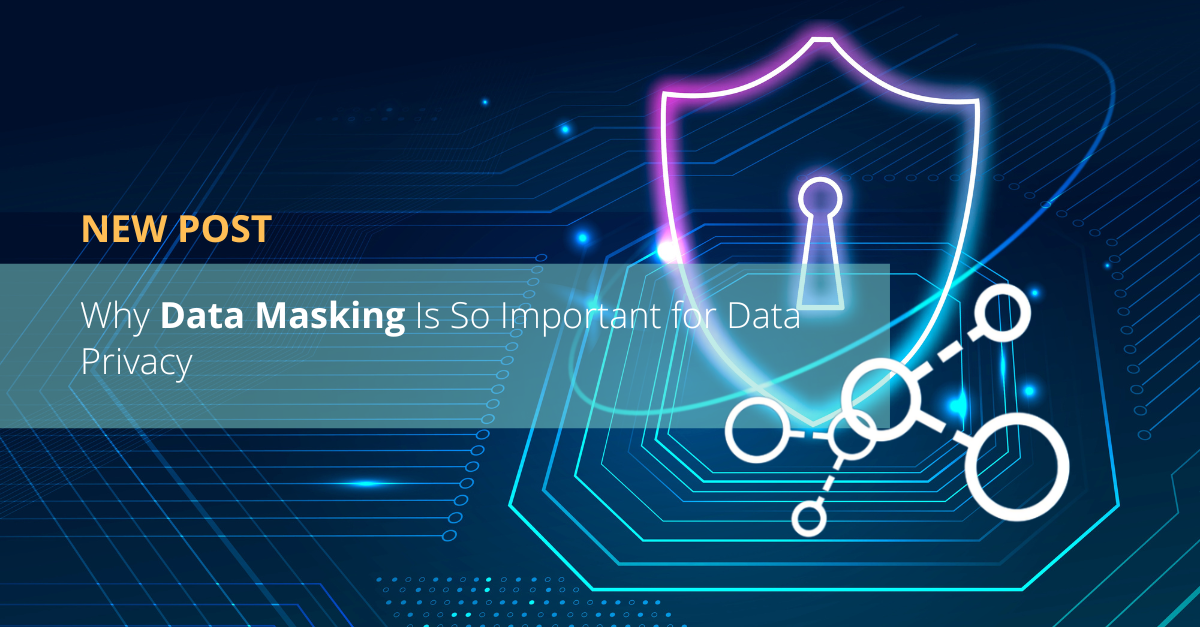
Data masking is essential to ensure the privacy of sensitive data. By eliminating sensitive information or replacing it with fictitious or altered data, its exposure is reduced and the privacy of the individuals or entities involved is protected. This is especially relevant when handling personal, financial or health-related data, as it helps prevent unauthorized disclosure and reduces the risk of identity theft, fraud or other privacy breaches.
In addition to protecting privacy, data masking is necessary for complying with data privacy regulations and standards. For example, the European Union's GDPR establishes strict requirements for the protection of European citizens' personal data, and, data masking is an effective measure to comply with these legal obligations. Similarly, the HIPAA in the United States mandates health data protection. Data masking can help comply with these regulations.
Another important reason for using data masking is to mitigate the risk of insider threats. Many data breaches occur due to employees or privileged users accessing sensitive information in an unauthorized manner. By masking the data, the exposure of real information is limited and the possibility of misuse or unauthorized disclosure of data by insiders is reduced.
One more area where data masking is necessary is in software development and testing. Masking allows developers to work with realistic data without exposing real sensitive data, ensuring data security and privacy. In addition, data masking facilitates collaboration and data sharing for development and testing purposes without compromising the confidentiality of the information.
Related content:
Data masking techniques and how they work
When it comes to data masking, there are multiple techniques with which you can maintain data privacy. Among all the existing techniques, we will highlight the following:
-
Substitution: This technique involves replacing the original data with fictitious or randomly generated data. For example, real names can be replaced with fictitious names, identification numbers with randomly generated numbers, or email addresses with made-up addresses. This ensures that the original data is not recognizable and cannot be used to identify individuals or access confidential information.
-
Truncation: This technique involves shortening or reducing the length of the original data. For example, credit card numbers, social security numbers or IP addresses can be truncated to remove the final or central characters and stored securely in a database. This allows masked data to be used for development or testing purposes without exposing sensitive or confidential information.
-
Obfuscation: This technique involves changing the structure or format of the data without changing its meaning or value. For example, dates, telephone numbers or addresses can be altered by changing the order of digits, substituting similar characters, or applying reversible encryption algorithms. This, like truncation, makes it possible to maintain the functionality of masked data for development or testing purposes, without disclosing confidential information.
-
Deletion: This technique involves the total deletion of confidential or sensitive data. This is achieved by replacing private data with predefined characters, such as asterisks, hyphens or other characters. This technique is mainly used in documents and not in databases, since the confidential information is completely erased and with no context, it would have no value, despite the privacy being conserved.
-
Labeling: This technique involves replacing the original data with tags that represent the type of information contained in that sensitive data. For example, you can replace personal names with the PER tag, current account numbers with the IBAN tag, or links with the URL tag. This allows the functionality of the masked data to be maintained for development or testing purposes without revealing sensitive information.
How to protect your data with data masking
Data masking is an increasingly important technique for protecting the privacy and confidentiality of sensitive data. To protect your data with data masking, you must first, identify the sensitive data that needs to be protected. Next, it is important to classify the data according to its level of sensitivity and decide which masking techniques should be applied to each type of data.
Masking techniques can include any of the techniques explained above. It is important to apply the appropriate anonymization techniques to each type of data to ensure that it is being adequately protected and that it cannot identify individuals or reveal confidential information.
Once masking techniques have been applied, it is important to evaluate the masked data to ensure that it has been adequately protected. It is always necessary to implement a security policy for handling sensitive data and data masking. It is also important to perform security tests to detect possible vulnerabilities or weaknesses in data masking and take preventive measures.
By following the above steps, you can protect your data and ensure that it is handled properly and securely. By doing so, you can ensure that sensitive data is protected and not exposed to potential security threats.
Recommended reading:
Things to take into account when choosing a data masking solution:
When selecting a possible data masking solution for data privacy, several factors must be taken into account. Some of them are as follows:
-
Type of data: You must evaluate the type of data to be masked, its level of sensitivity, and the regulation it must comply with, in order to choose the most appropriate masking technique.
-
Scalability: The masking solution must be scalable to handle large volumes of data efficiently and without impacting application performance.
-
Flexibility: It must be flexible and allow customization so that the data can be masked according to the organization’s specific needs.
-
Ease of use: The masking solution should be easy to use and integrate with other existing solutions in the organization to minimize the time and resources required to implement it.
-
Access control: The masking solution must have access controls to ensure that only authorized persons have access to the masked sensitive data.
-
Regulatory compliance: The masking solution must comply with the rules and regulations related to privacy and data protection in the industry and country in which it is going to be used.
-
Irreversible: It should not be possible to recover the original data once the data masking process is finished. If it is possible to reverse the process to retrieve the sensitive data again, it does not serve the purpose of data masking.
Taking these aspects into account can help to choose an effective and efficient solution to protect an organization's sensitive data.
Pangeanic's data privacy solutions
Data masking is one of the most important measures that can be taken to protect privacy and information security. This involves not only implementing effective data masking techniques, but also ensuring that they are used appropriately and responsibly at all stages of the data's life cycle. By taking steps to effectively protect data, we can ensure the confidentiality, integrity and availability of information, which is critical for security and privacy in today's digital world.
At Pangeanic, we offer a complete and customized anonymization solution using various techniques for the removal of identifiers from a database, documents or publications. With our technology, traces and clues that could expose confidential details are destroyed. We give our clients the possibility to choose the technique they prefer when masking the data.
The solution we have developed is called Masker, a data masking system that automatically detects personally identifiable information and allows you to adjust the level of sensitivity of the process through different techniques.
As mentioned above, this is a customized solution, so apart from the basic masking that our system performs, we give our clients the option to customize the system to their liking. In this way, you can select the types of data you want to mask (people, organizations, etc.) and the type of masking, as well as create or request the regular expressions to mask new data patterns not covered by our system, among other options.
This solution is available on our AI-based language processing platform called ECO, which, apart from offering data masking or anonymization solutions, also has solutions for both pseudonymization and machine translation.




